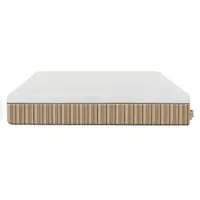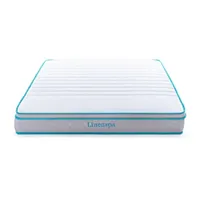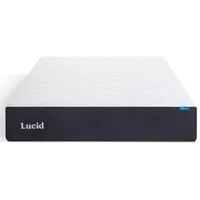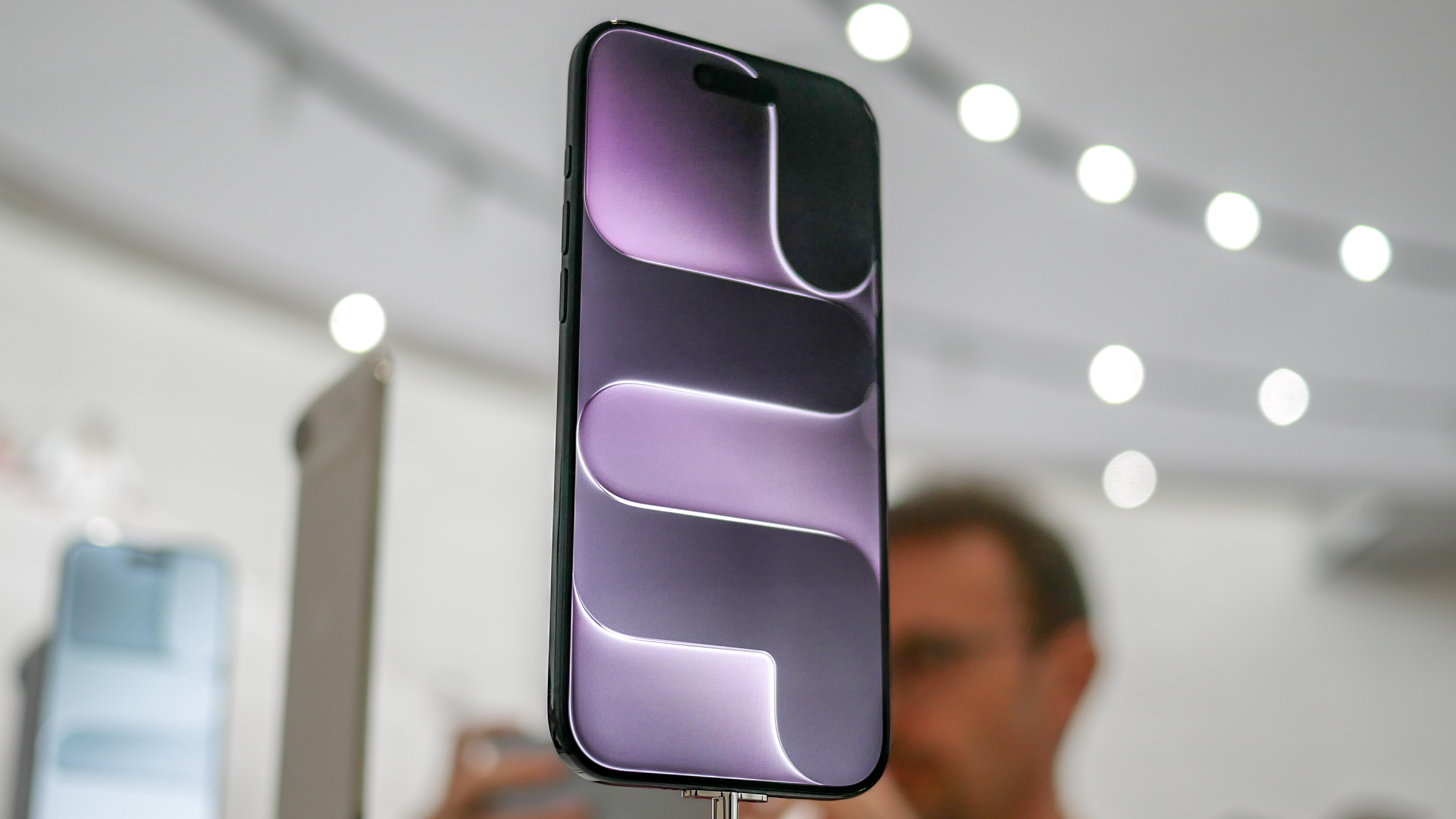Should you sleep on an 8 inch mattress or are they too thin to be comfortable?
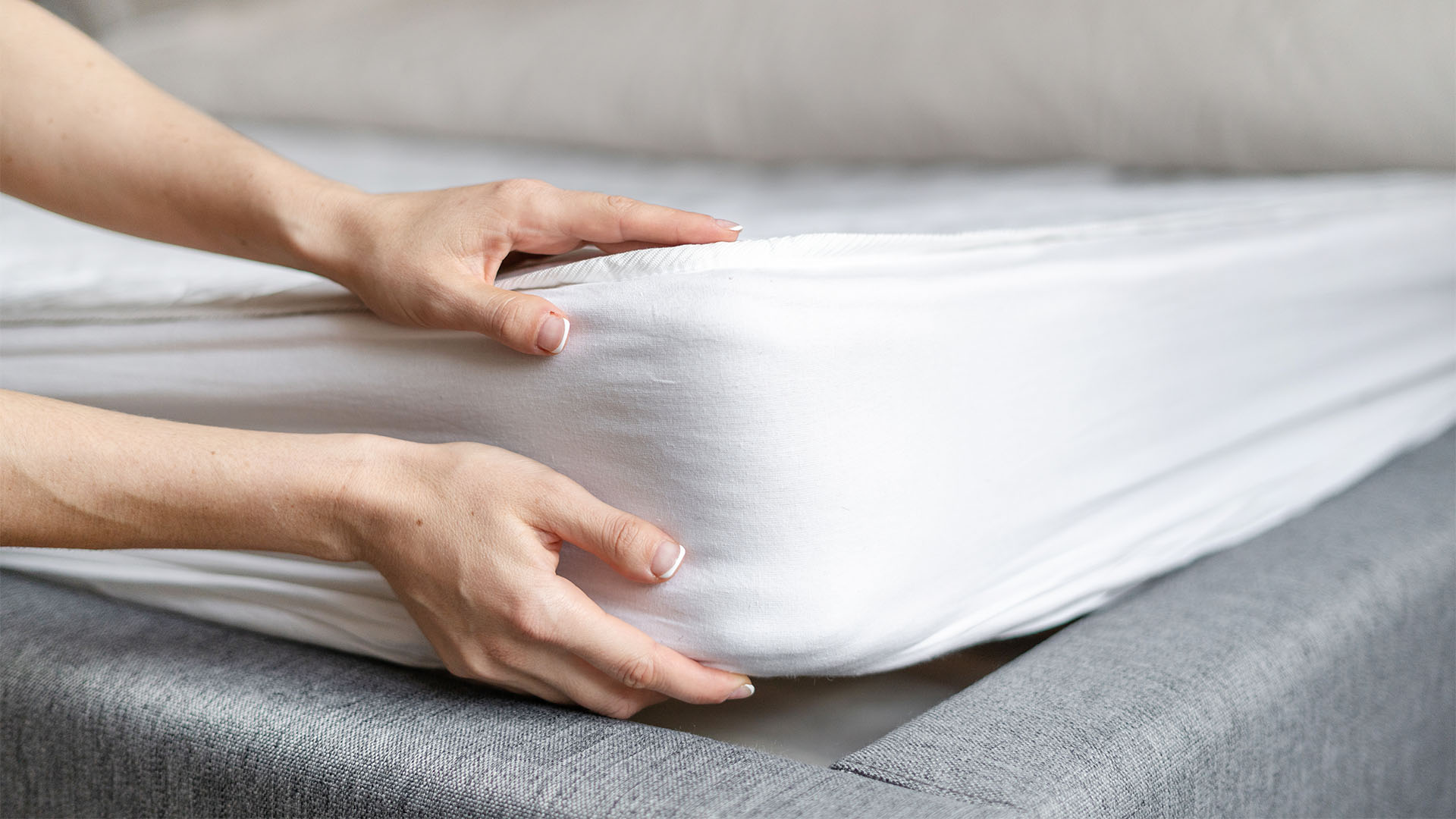
An 8 inch mattress is a bed that measures 8 inches from the base to the cover. Any type of mattress can be an 8 inch bed, from hybrids to all-foams, but aren't suitable for every sleep style.
From testing this year's best mattresses for all sleepers, a bed depth of at least 12 inches is generally recommended for adequate comfort and support. A thickness of 8 inches is on the shallow end of standard, making them suitable for lighter weight adults, children and teens.
However, it also depends on how many supportive layers are hidden within the mattress. An 8 inch tall mattress will usually (not always) contain fewer supportive layers, making them a suitable option for dorm rooms and guest beds as opposed to every day use for average weight adults or couples.
Here, we'll explore what you can expect from an 8 inch mattress, including the sleep styles they suit and who should avoid this type of bed. We've also rounded up some of the best 8 inch mattresses you can shop today.
What is an 8-inch mattress?
Sitting at the thinner end of acceptable thickness for an adult bed, an 8 inch mattress is a bed that measure 8 inches from the base to the surface. Often recommended for children and teenagers, 8 inch mattresses can be suitable for adults, provided they match your sleep style and body type.
We determine standard mattress thickness as any bed measuring between 8 inches and 12 inches. Plusher, more expensive mattresses tend to be taller, even topping 16 inches for the most sumptuous builds. On the other hand, mattresses shallower than 8 inches are often aimed at children and can be budget-friendly beds.
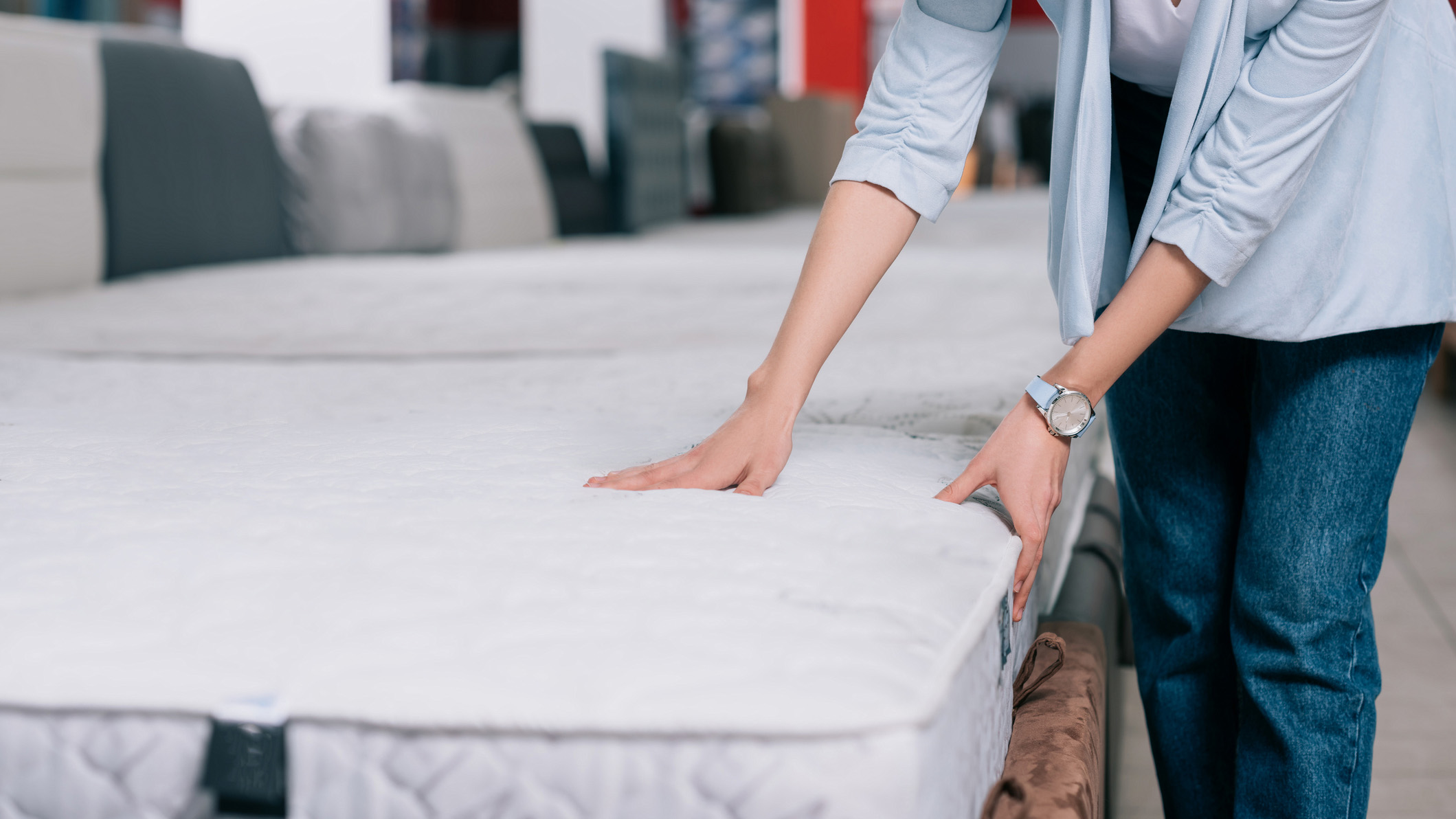
8 inch mattresses lack the multi-layered builds of taller beds, and with less cushioning, they tend to have a firmer feel. This means these shorter mattresses tend to suit back and stomach sleepers who require support along the lumbar region. However, because of the reduced height, you can fit fewer layers in an 8 inch mattress. So the layers they do include should be high quality.
Get instant access to breaking news, the hottest reviews, great deals and helpful tips.
Why does mattress thickness matter?
The height of the mattress contributes a lot to the overall feel of the bed. Too thick or too thin and and you might find your sleep suffers. Thickness also determines how much weight a mattress can comfortably hold before you'll encounter premature sagging.
Considered alongside material and feel, mattress thickness determines how well the bed will suit your sleep style. Side sleepers will need thicker mattresses with more cushioned pressure relief, while many back and side sleepers snooze better on a bed with firmer support.
Mattress height is also important if you struggle to get in and out the bed. Those with limited mobility might find a tall mattress hard to climb into, while a shorter bed could also prove problematic if you struggle to bend down.
Who is an 8 inch mattress best for?

Thinner mattresses, with fewer supportive laters and less cushioning, are typically best suited for those with a lighter build. They're comfortable for kids and young adults in particular, but lightweight adults should generally sleep soundly on an 8 inch mattress.
Back and stomach sleepers can also benefit from the firmer support of an 8 inch mattress. Without the plush upper layers to sink into, thinner mattresses can hold the lumbar region at a neutral angle, so your hips don't press into the bed.
These smaller mattresses also tend to be cheaper options, so they can be a good choice if you're on a budget. However, if you are looking for the best cheap mattress, the bed should suit your sleep style, as well as your price range – shopping the mattress sales can often get you a thicker bed for less.
Who shouldn't buy an 8 inch mattress?

8 inch mattresses lack the thick cushioned layers of taller beds, which means they don't suit every type of sleeper. As a general rule, we don't recommend 8 inch mattresses for plus size adults, as the thin build can feel like you're sinking through the bed's support layers. The best mattresses for heavier people are taller, consist of multiple layers and have been specially engineered to accommodate heavier weight.
On a similar note, we don't recommend 8 inch mattresses for couples sharing a bed (or those who regularly share a bed with kids or pets). The increased weight will cause the mattress to start sagging sooner, reducing the level of support it can provide, as well as its overall lifespan.
Side sleepers should also consider a thicker mattress of around 12 to 14 inches. Side sleepers require cushioning for pressure relief at the shoulders and hips, which an 8 inch mattress can rarely provide. Similarly, combination sleepers who move between positions should consider a thicker build, especially if you spend much of the night on your side.
How to choose the best 8 inch mattress
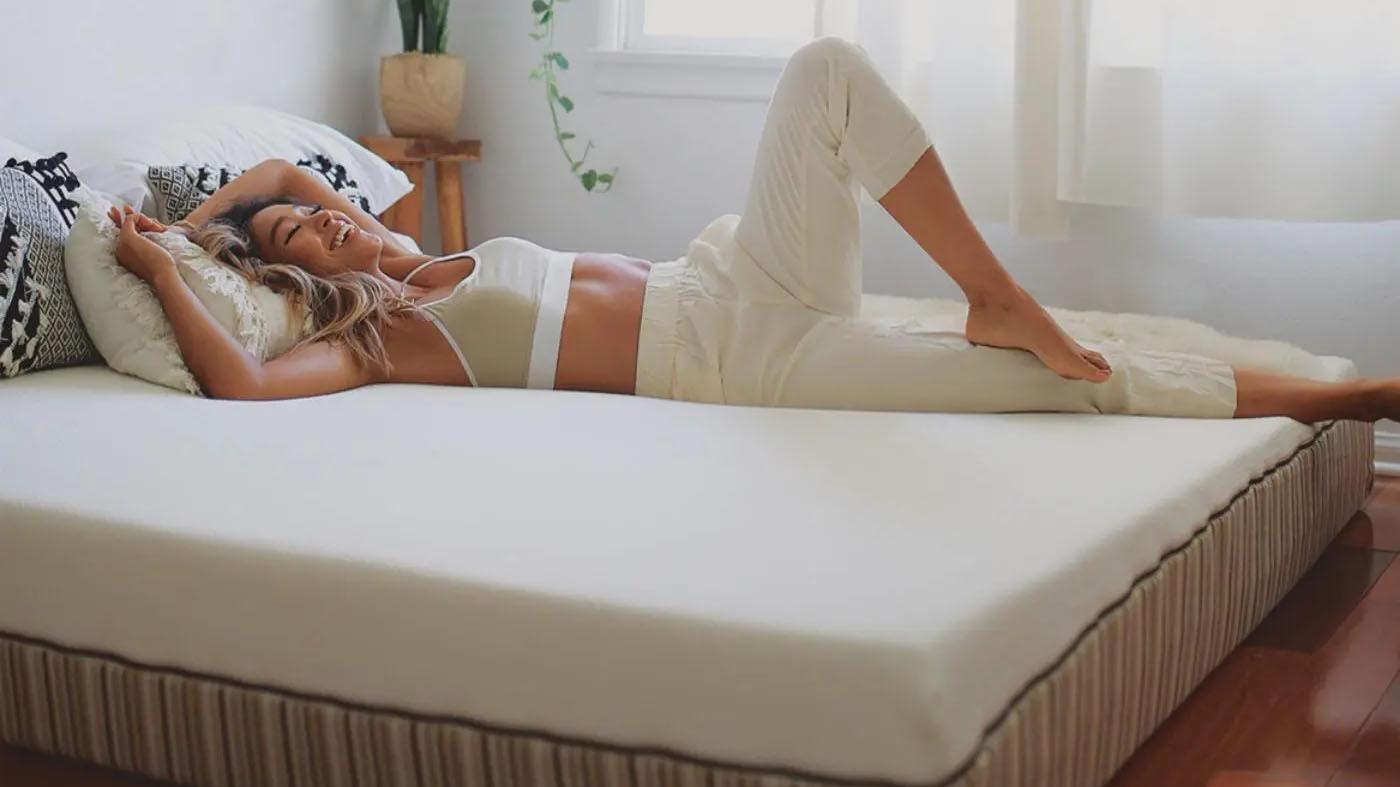
1. Supportive layers
An 8 inch mattress might not have the room for all the layers of a taller bed, but it should still have a supportive build. Below any cushioning there should be a layer of either strong coils or dense foams to ensure the sleeper is held comfortably from head-to-toe.
2. Reputable brand
Thinner mattresses are often cheaper than their thicker counterparts, so if you're shopping on a budget, an 8 inch bed can be a good choice. But make sure your 8 inch mattress comes from a brand you can trust. For example, the Siena Essential Memory Foam Mattress is just $299 for an 8 inch queen. Siena is owned by Resident Home, the company behind Nectar and DreamCloud, so we can trust this bed to deliver quality.
3. Good quality materials
When it comes to an 8 inch mattress, it's often a question of quality over quantity. Instead of numerous layers, look for fewer layers made of top-grade materials such as memory foam or latex foam. This ensures your bed will still offer support and pressure relief, without the complex layering of a thicker mattress.
Who should buy an 8 inch mattress?
Buy an 8 inch mattress if...
✅ You're shopping for a child or a young adult: Thinner beds tend to be most comfortable for those with a smaller build, making them a good choice for children and teenagers. In addition, the lower profile can make it easier for young kids to get in and out of bed.
✅ You sleep on your back or stomach: A thinner mattress with firmer support can hold the spine in a neutral position when sleeping on your back or stomach. Taller and plusher mattresses can have more sink, causing the hips to fall out of line and increasing the risk of lower back pain.
✅ You have limited mobility: If you struggle to climb in and out of a taller mattress, you might benefit from the lower profile of an 8 inch bed. You should be able to sit on the edge of your bed with your feet flat to the ground and your knees bent to 90 degrees.
Don't buy an 8-inch mattress if...
❌ You sleep on your side: Side sleepers need extra cushioning at the shoulders and hips to reduce pressure build up. Without these soft layers, 8 inch mattresses can cause side sleepers to wake up with aching joins. Instead, opt for a mattress with a profile of at least 12 - 14 inches.
❌ You weigh over 250lbs: Heavier sleepers can often feel like they're sinking straight through a thinner mattress. In addition, with fewer supportive layers, you might find the bed wears out quicker.
❌ You share a bed: Thinner mattresses can't hold the same weight as thicker mattresses, so if you share a bed, you might find your 8 inch mattress starts to sag after just a few years of use.
3 best 8 inch mattresses to shop today
Essentia Stratami Organic Mattress: from $2,915 at Essentia
Thinner mattresses can seem synonymous with cheaper mattresses, but the Essentia proves an 8 inch bed can still be luxurious and supportive. In our Essentia Stratami Organic Mattress review our tester was impressed with the "near perfect performance" of this premium mattress. It is expensive – a queen is $3,509 – but it does deliver superb support from an organic and vegan build.
Linenspa Memory Foam and Spring Hybrid Mattress: from $119.99 at Amazon
The Linenspa is a reliable 8 inch mattress. While we weren't blown away in our Linenspa Memory Foam Hybrid Mattress review, we found for the price this budget bed offers a good performance. You can purchase it directly from Linenspa where a queen will set you back $249.00, but there are limited sizes available. Alternatively, a queen is just $239.99 on Amazon and you get more choice (but fewer benefits).
Lucid Low Profile Memory Foam Mattress: from $189.99 at Lucid
Lucid recommends the Low Profile Memory Foam Mattress for dorm rooms and guest rooms, as well as kids and teens. You can choose between a plush and firm feel, although measuring only 8 inches, don't expect a particularly cushioned bed if you opt for plush. At just $299.99, this is an affordable choice from a trusted brand, and you get a 100-night trial and a 10-year warranty.

Ruth is a staff writer at Tom’s Guide, covering all things mattress and sleep. She has a deep interest in the link between sleep and health, and has tried enough mattresses to know the right bed really can make a difference to your wellbeing. At Tom’s Guide she writes to help people sleep better, from how-tos to the latest deals to mattress reviews, and has interviewed an array of specialists who share her passion. Before joining the team at Tom’s Guide, Ruth worked as a sleep and mattress writer for our sister website, TechRadar.
